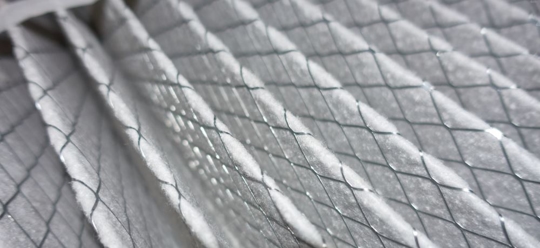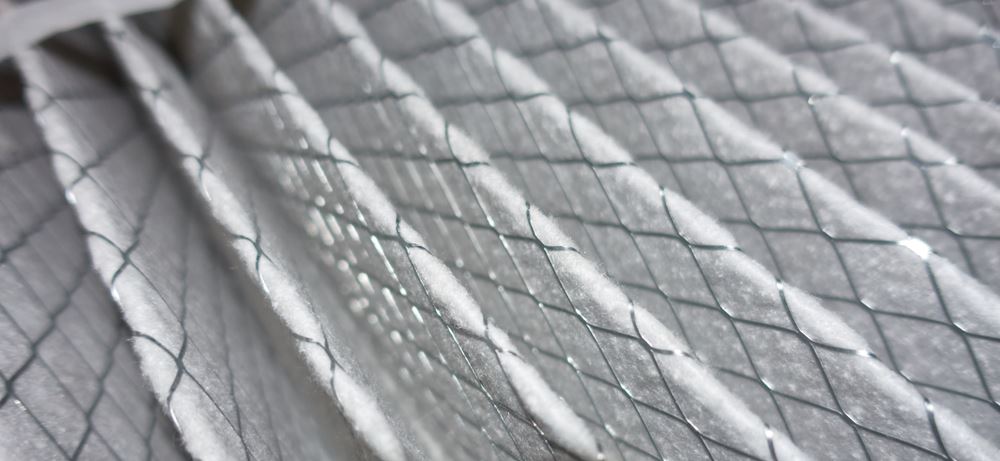We’ve talked often about how often you should change your air conditioner filters, but the frequency of change is not the only factor to consider.
It’s also important to know how the kind of air conditioner filters you use affects your air quality. You may not have considered the impact of your filter on your health and the safety of your home before now. But it’s important.
The EPA suggests that the concentration of air pollutants is 2 to 5 times higher INSIDE your home than outside your home. Wow. That’s a lot of potentially harmful stuff to be breathing while you think you’re resting safe and sound in the safety of your home.
How to know what your filter can do for you
The purpose of a filter is to take out as many of the impurities in the air as possible. Which ones take out the most dust? Which ones are best at filtering gases? Which ones are best for people with respiratory problems?
If you’re not in the HVAC business, it seems impossible to tell how good a filter is by looking at it. That’s why filters are tested and rated by people who understand how systems work.
MERV rating
The most common rating is the MERV rating: “MERV” stands for the Minimum Efficiency Reporting Value. The scale for MERV ratings was created in 1987 by the Society of Heating, Refrigeration, and Air Conditioning Engineers, (SHRACE). Filters are rated numerically from 1-16, with 16 being the best filter.
Basically, a MERV rating tells you how efficient a filter is at pulling particles of specific sizes out of the air.
To get an idea of what a MERV rating means:
· A 1-4 MERV rating means that only 20% of the biggest particles, 3-10 microns, are filtered out of the air, and none of the smaller stuff is pulled out.
· A 16 MERVE rating, the highest on the scale, means that 95% of contaminants of ALL sizes are filtered. Contaminants in the air are sized from .3 microns to 10 microns.
How big is a micron?
A micron is 1/25,000th of an inch. To put that in perspective, the average human hair is about 70 microns in size. So a filter with a MERV rating takes out 95% of contaminants even as small as .3 of a micron. That’s where the math starts to boggle the mind. The best-rated MERV filters can take out 95% of particles that are .000012 of a micron!
Think about the power of better filters to take dust, dirt, pollen, pet dander, smoke, and chemicals out of the air you breathe, and you’ll understand how an air conditioner filter affects your air quality.
Other rating systems
The MERV rating system is by far the most common and most recognized in the world. There are, however, other systems.
The 3M company, the manufacturer of more than 60,000 products, including air conditioner filters, developed its own filter-rating system. It’s called the MPR, the Microparticle Performance Rating.
Not to be outdone, Home Depot, a big box retailer that sells filters, came up with its own rating system called the FPR for Filter Performance Rating.
Neither of these alternative systems clearly explains how it’s different from MERV, or how the tests were done to provide these ratings.
But no matter which system, they all work on the same principle: the higher the rating, the better the filter at keeping nasty stuff out of the air and improving your air quality.
What kind of air conditioner filter should you buy?
First, the most important thing is to buy the best quality filter your system recommends.
The SHRACE recommends an absolute minimum rating of MERV 6, but strongly urges you to purchase filters in the range of 8-13.
The most common-sized filters are 1” thick, but some systems are manufactured to take thicker filters. The thicker the filter, the more particles they pull out of the air.
Yes, higher-rated filters cost more than lower-rated filters, but they drastically improve your air quality and have to be changed less often to be effective.
Research by the EPA suggests that filters with a MERVE rating of 7-13 are nearly as effective as a HEPA filter at controlling airborne indoor particles. (A true HEPA filter is a High Efficiency Particulate Air Filter that takes out 99.97 of contaminants in the air and is used in medical and commercial applications.) The National Institute of Health has said that filters with a MERV rating of 11-13 can improve some respiratory conditions and significantly reduce fine particulate pollution.
What works with your system?
Just because there’s an ultra-thick, highly-rated filter doesn’t mean you should purchase it. Not all systems can use thicker than 1” filters. It’s even possible if you put a filter in that your system isn’t designed for, you could damage your unit. Too much filtration could cause a drop in air pressure which, in turn, could cause your blower to work harder.
The harder your blower has to work, the greater the chance of a malfunction.
The size of filter you need is listed on your current filter, and some filters even contain a minimal size, which may be up to 5/8ths of an inch smaller than the ideal size. The air filter should cover the vent opening exactly.
ServiceOne makes buying filters easy for you
ServiceOne has taken the worry out of buying filters for you. Simply click on our “Shop Online” button on our website. You’ll land on a filter-buying page where you can search for the air conditioner filter you need by size, filter brand, or type of equipment you own.
The filters are shipped directly to you, without worry and without stress! Keeping a case on hand allows you to change them every 30-45 days for the optimum efficiency of your system and for the best air quality possible.
Best yet, we have competitive prices, and you’re doing business with a small business you trust.
Call us with any questions about your system needs. Whether it’s a question about filters, or about repairing or replacing your current equipment, ServiceOne is here to help.


